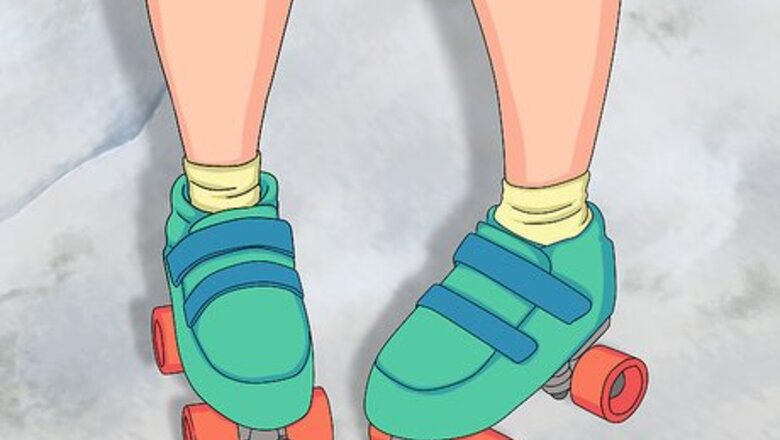
views
Skating Backwards
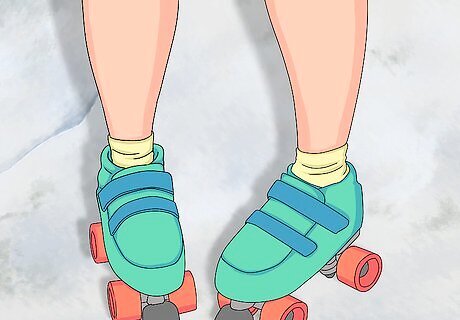
Make a “V” shape with your feet. Your toes should be touching together, and your heels should be apart. The outer edges of your feet should create a rough 90 degree angle with your toes forming the corner. If you find this uncomfortable, it helps to bend your knees a bit.
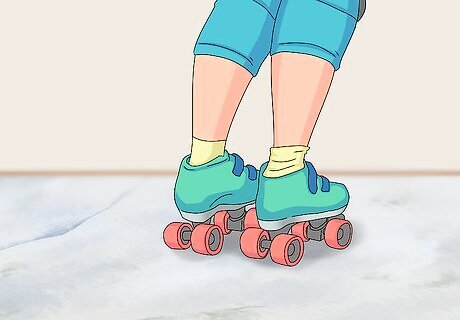
Push your heels apart and bring them back together. The wider the gap that you create when you push your heels apart, the faster and longer you will move backwards. When your heels meet, recreate the “V” shape with your toes and repeat. Alternatively, you can apply pressure to your right toes while lifting your left foot to glide backwards on one skate. Mirror this motion with the other foot when you start to run out of momentum.
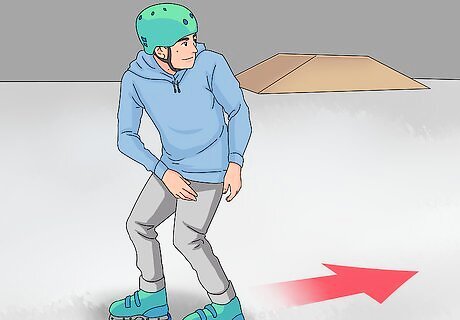
Look behind you over your shoulder. The only way to see where you are going is to glance over your shoulder regularly. This can be very disorienting, so be careful and take it slowly when you are first learning how to skate backwards. Do not lean back when you look to see where you are going. This is how most people fall down.
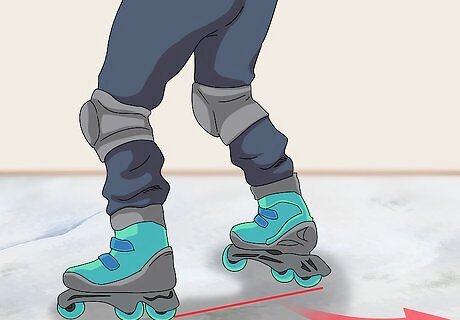
Increase the length of your strokes to pick up speed. The wider you can spread your ankles apart, the more momentum you will generate. The faster that you can repeat the process of putting your toes together and then pushing your ankles apart, the faster you will move. Practice before you skate on the rink. If you want to get good at skating backwards, practice by going slowly at first and stepping slowly. If you fall, don't panic; it happens to everybody and eventually you will get better. Skating backward takes lots of practice. Do not increase your speed or the width of your spread until you are comfortable and confident.
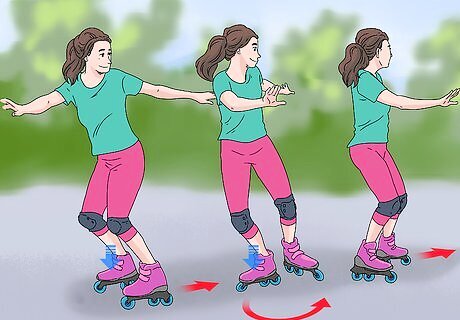
Switch between skating backwards and forwards. Transfer your weight to your right foot. At the same time lift up on your left foot and use it to swing your body 180 degrees. Then turn your right foot to face forward and use it to push off. Once you start to turn, make sure your core and hips stay aligned. Don't twist around at the waist.
Learning the Fundamentals of Skating
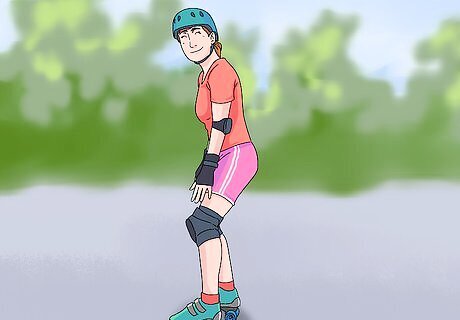
Wear protective gear on your head, knees, and arms. If you are just learning how to skate, you should wear plenty of protective gear because you will probably fall down sometimes. If you are an experienced skater, you should still consider wearing some gear because accident can even happen to professionals. The most important piece of protective gear is a solid helmet. You can injure your head from taking a slight fall. Make sure the helmet is comfortable and has a snug fit on your head. You can also get knee pads and wrist guards for some added protection. These are especially useful if you are skating on rougher surfaces like cement or asphalt.
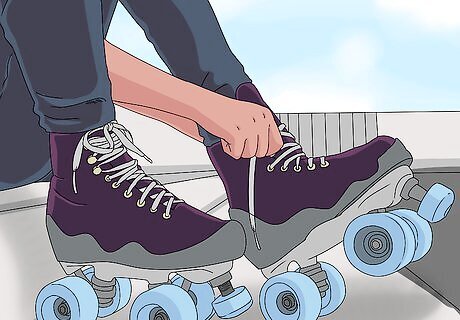
Lace up your skates. Start with the bottom and work your way up the skate. The laces should go underneath the first eye-holes and they should criss-cross over each other as you run the laces up the skate. You will also rotate pulling the laces under and over the eye holes. Pull the laces as tight as you can after you run them through each eye-hole.
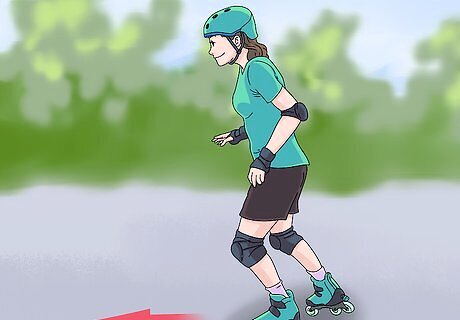
Learn how to skate forward. You should be practiced at roller skating before you start trying to skate backwards. Push off with one foot and glide until you lose momentum. Then, push off with the other foot. Develop your forward glide and a posture that works for you. Once you have these down, you can start practicing more difficult maneuvers like backward skating. You should be fairly confident in your ability to skate forward before trying to skate backward. Two important skills you should know before skating backwards are finding your balance and being able to increase your speed without losing control.
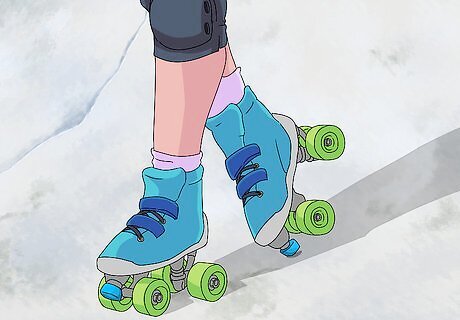
Use your front brake to stop skating. Roller skates have brakes on the front of the shoe. They are the round, hard-plastic or rubber knobs near the end of the toe. Move one skate in front of the other and lift it slightly. Then press that toe down against the surface you are skating on. Push down quickly with a good amount of force to avoid losing your balance.

















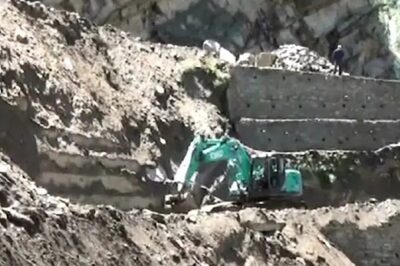


Comments
0 comment